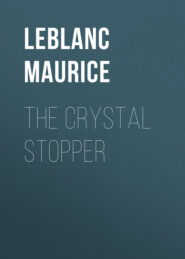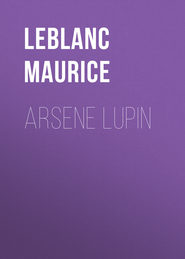По всем вопросам обращайтесь на: info@litportal.ru
(©) 2003-2025.
✖
The Extraordinary Adventures of Arsene Lupin, Gentleman-Burglar
Настройки чтения
Размер шрифта
Высота строк
Поля
“For the last time, let me pass,” he cried.
“The letters, first!”
Varin drew a revolver and, pointing it at Mon. Andermatt, said:
“Yes or no?”
The banker stooped quickly. There was the sound of a pistol-shot. The weapon fell from Varin’s hand. I was amazed. The shot was fired close to me. It was Daspry who had fired it at Varin, causing him to drop the revolver. In a moment, Daspry was standing between the two men, facing Varin; he said to him, with a sneer:
“You were lucky, my friend, very lucky. I fired at your hand and struck only the revolver.”
Both of them looked at him, surprised. Then he turned to the banker, and said:
“I beg your pardon, monsieur, for meddling in your business; but, really, you play a very poor game. Let me hold the cards.”
Turning again to Varin, Daspry said:
“It’s between us two, comrade, and play fair, if you please. Hearts are trumps, and I play the seven.”
Then Daspry held up, before Varin’s bewildered eyes, the little iron plate, marked with the seven red spots. It was a terrible shock to Varin. With livid features, staring eyes, and an air of intense agony, the man seemed to be hypnotized at the sight of it.
“Who are you?” he gasped.
“One who meddles in other people’s business, down to the very bottom.”
“What do you want?”
“What you brought here tonight.”
“I brought nothing.”
“Yes, you did, or you wouldn’t have come. This morning, you received an invitation to come here at nine o’clock, and bring with you all the papers held by you. You are here. Where are the papers?”
There was in Daspry’s voice and manner a tone of authority that I did not understand; his manner was usually quite mild and conciliatory. Absolutely conquered, Varin placed his hand on one of his pockets, and said:
“The papers are here.”
“All of them?”
“Yes.”
“All that you took from Louis Lacombe and afterwards sold to Major von Lieben?”
“Yes.”
“Are these the copies or the originals?”
“I have the originals.”
“How much do you want for them?”
“One hundred thousand francs.”
“You are crazy,” said Daspry. “Why, the major gave you only twenty thousand, and that was like money thrown into the sea, as the boat was a failure at the preliminary trials.”
“They didn’t understand the plans.”
“The plans are not complete.”
“Then, why do you ask me for them?”
“Because I want them. I offer you five thousand francs—not a sou more.”
“Ten thousand. Not a sou less.”
“Agreed,” said Daspry, who now turned to Mon. Andermatt, and said:
“Monsieur will kindly sign a check for the amount.”
“But....I haven’t got–”
“Your check-book? Here it is.”
Astounded, Mon. Andermatt examined the check-book that Daspry handed to him.
“It is mine,” he gasped. “How does that happen?”
“No idle words, monsieur, if you please. You have merely to sign.”
The banker took out his fountain pen, filled out the check and signed it. Varin held out his hand for it.
“Put down your hand,” said Daspry, “there is something more.” Then, to the banker, he said: “You asked for some letters, did you not?”
“Yes, a package of letters.”
“Where are they, Varin?”
“I haven’t got them.”
“Where are they, Varin?”
“I don’t know. My brother had charge of them.”
“They are hidden in this room.”
“In that case, you know where they are.”
“How should I know?”











